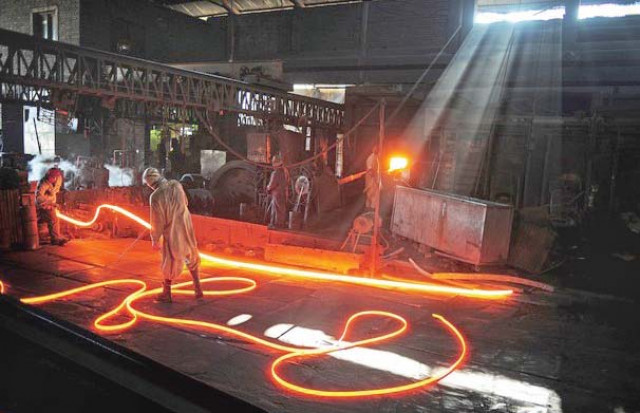PSEs - they can’t breathe on their own - I
Successive govts have failed to come up with viable plan to stop, reverse losses

Pakistan Steel Mills (PSM) and Pakistan International Airlines (PIA) are in news again and we all know the reasons.
The sustained failure of governments to successfully run them says a lot about priorities of the rulers. PSM was supposed to serve as the mainstay of industrial development, however, its mismanagement reached such levels that since 2006 governments have made attempts on a number of occasions to dispose it off to the private sector.
Even the said attempts being half-hearted and ill-conceived proved futile. We have observed this half-heartedness in many other instances too such as PIA. Similarly, the recurring fuel crisis and the ever-increasing shortage of gas reflect the failure of public sector enterprises (PSEs) concerned in managing the energy supply chain of the country.
Pakistan’s public sector has been in net loss since 2014-15 and the problem has only grown with time. The purpose of this article is to analyse the governance challenges of this most critical part of Pakistan’s economy ie the PSEs, which has been on ventilator since long, and to identify the steps essential to make the PSEs breathe on their own, especially, when their losses now exceed Pakistan’s defence budget outlay.
Historically, billions of rupees have continued to disappear in them with no signs of recovery. The number has steadily grown over the past decade from Rs400 billion in 2008 to Rs1.5 trillion last year. Circular debt of the power sector alone is touching Rs2.4 trillion and energy companies like Oil and Gas Development Company (OGDC), Pakistan Petroleum Limited (PPL), Pakistan State Oil (PSO), Sui Northern Gas Pipelines Limited (SNGPL) and Sui Southern Gas Company (SSGC) are creaking under the increasing deadweight of their own receivables.
Unfortunately, despite the continued and profuse bleeding of the economy through the PSEs, successive governments have failed to come up with any viable plan to stop and reverse this – except for a few half-hearted attempts at privatisation.
And, it’s not only the losses which need attention; the real loss is the revenue which they could generate. A half-hearted attempt was made in this regard by the present government by establishing Sarmaya-e-Pakistan, however, the composition of its board having three federal secretaries failed to address the root cause. No wonder that it disappeared in a short time.
After going through relevant records of the PSEs, we can only divide them into two categories ie either those which are already in loss or those which are still in positive but definitely performing much below their potential. There are no success stories ie a PSE operating along professional lines and proving to be a leader in its arena like Saudi Aramco, Statoil (now Equinor), Telenor, Maaden, SABIC, Petronas, SP Group, Emirates airline, etc.
Professional boards
We are all aware of the attempts at privatisation of various PSEs due to their continued losses. However, not much thought has ever been paid to constituting truly professional boards for them.
Is it not the quality of leadership which ultimately matters in every case? What would a private owner do? He would just gather the best of that discipline and put them in the board and the senior management and things would start improving almost automatically.
PSEs in the world account for 20% of market capitalisation and a number of them can teach others a lot with respect to profitability, efficiency and agility. We need to study the methods of their governance and adopt them in Pakistan. As part of that study, this writer went through the operating models and composition of boards of several large international PSEs and also the operating perimetres and composition of boards of more than 10 PSEs in Pakistan. In order to understand the causes, I reviewed the boards of my sample companies according to the following yardstick:
a) Are the sitting directors equipped with the profiles capable of driving strategic development of companies? b) Would every current board member meet the minimum criteria, except for age, for the CEO’s position? c) Why owner’s (state) interest is being looked after by ministry officials in the PSEs? Are they not specialised fields requiring specialised knowledge and experience? d) Is it not a conflict of interest that ministry officials are serving as directors in the PSEs and also regulating them? e) Why can’t we allocate a few seats on each board to renowned international experts?
When the profiles of current board members of the PSEs of the sample group were run through the above sieve, a negligible number barely succeeded in passing through. No wonder then for where we are.
The writer is a corporate lawyer holding a postgraduate law degree from the UK and based there
Published in The Express Tribune, December 21st, 2020.
Like Business on Facebook, follow @TribuneBiz on Twitter to stay informed and join in the conversation.



















COMMENTS
Comments are moderated and generally will be posted if they are on-topic and not abusive.
For more information, please see our Comments FAQ